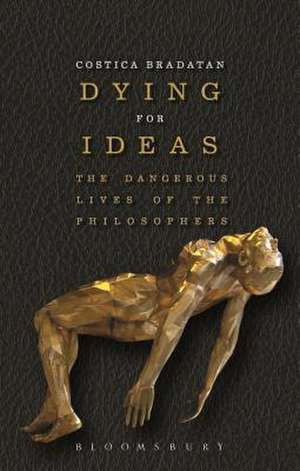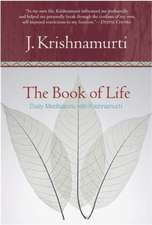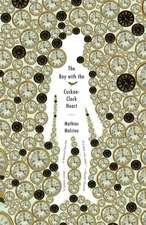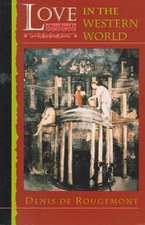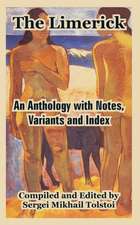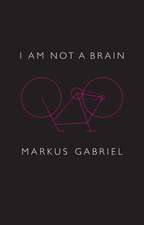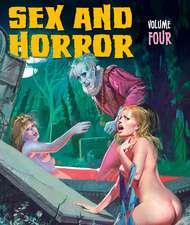Dying for Ideas: The Dangerous Lives of the Philosophers
Autor Costica Bradatanen Limba Engleză Hardback – 25 feb 2015
| Toate formatele și edițiile | Preț | Express |
|---|---|---|
| Paperback (1) | 72.79 lei 3-5 săpt. | +58.53 lei 4-10 zile |
| Bloomsbury Publishing – 21 mar 2018 | 72.79 lei 3-5 săpt. | +58.53 lei 4-10 zile |
| Hardback (1) | 226.31 lei 6-8 săpt. | |
| Bloomsbury Publishing – 25 feb 2015 | 226.31 lei 6-8 săpt. |
Preț: 226.31 lei
Preț vechi: 349.07 lei
-35% Nou
Puncte Express: 339
Preț estimativ în valută:
43.32€ • 47.07$ • 36.41£
43.32€ • 47.07$ • 36.41£
Carte tipărită la comandă
Livrare economică 21 aprilie-05 mai
Preluare comenzi: 021 569.72.76
Specificații
ISBN-13: 9781472525512
ISBN-10: 1472525515
Pagini: 256
Ilustrații: 10 bw illus
Dimensiuni: 138 x 216 x 28 mm
Greutate: 0.45 kg
Editura: Bloomsbury Publishing
Colecția Bloomsbury Academic
Locul publicării:London, United Kingdom
ISBN-10: 1472525515
Pagini: 256
Ilustrații: 10 bw illus
Dimensiuni: 138 x 216 x 28 mm
Greutate: 0.45 kg
Editura: Bloomsbury Publishing
Colecția Bloomsbury Academic
Locul publicării:London, United Kingdom
Caracteristici
Provides
timely
philosophical
and
political
insights
into
the
notion
of
dying
for
an
idea
Notă biografică
Costica
Bradatanis
Associate
Professor
of
Humanities
in
the
Honors
College
at
Texas
Tech
University
and
Honorary
Research
Associate
Professor
of
Philosophy
at
the
University
of
Queensland,
Australia.
He
is
the
author
and
editor
of
eight
books,
and
has
written
forThe
New
York
Times,
The
New
Statesman,
Times
Literary
Supplement,
Dissent,
Boston
Review,
Christian
Science
Monitor,
The
Globe
&
Mailamongst
others.
Bradatan
serves
as
the
Religion/Comparative
Studies
Editor
for
theLos
Angeles
Review
of
Books.
Cuprins
AcknowledgmentsIntroduction1.
Philosophy
as
Self-fashioning
2.
The
First
Layer
3.
Philosophy
in
the
Flesh
4.
The
Second
Layer
5.
The
Making
of
a
Martyr-Philosopher
Postscript:
To
Die
LaughingBibliographyIndex
Recenzii
An
intriguing
'dramatic
narrative'
of
philosophers'
clash
with
death
.
a
book
that
is
accessible
to
all
philosophers,
academic
and
non-academic
alike.
In
this
intelligent
and
artful
account,
[Bradatan]
ranges
from
the
ancient
world
to
our
own
times,
drawing
on
the
stories
of
individual
philosophers
who
defended
and
died
for
their
beliefs
...
Bradatan's
rich
examination
of
the
philosopher's
act
of
dying
for
ideas
brings
into
focus
the
riskiness
of
living
for
them
as
well.
[Bradatan] argues persuasively that death is not simply the opposite of life, but that it enters life and lends it urgency - that it can even 'breathe new life into life'.
Dying for Ideas: The Dangerous Lives of the Philosophers[is] a stimulating spiritual journey through an essential topic of human existence, and a reading of the history of human vision about it... Bradatan's highly intelligent and challenging book is an exemplary scrutiny of the life of the human mind, the human soul and body.
[Bradatan's] style is nimble. A register of directness works throughout the book, moving from argument to quip, to narrative as appropriate. The book is well designed, with each chapter building on the previous ...Dying for Ideasis a lucid discussion of mortality and an unsparing portrait of philosophy's ends - in both senses of the word.
Accessible, penetrating and erudite, [Dying For Ideasis] a beautifully written book which reveals that philosophy is not about academics grinding out dry papers but about mortals confronting the truths of the human condition in order to develop an art of living ... Bradatan has achieved something special in writing this book. As a comprehensive philosophy of death, it amounts to a profound philosophy of the true nature of philosophy itself
Books of philosophy are rarely page-turners, but Bradatan takes us through a fascinating exploration of the existential limit-situations in which philosophers find themselves when their only means of communicating the truth is their own dying bodies.
The choice of philosophers to sacrifice their lives for their ideas is lofty and grim. In Costica Bradatan's book, it is also fun and funny.Dying for Ideasis full of joie de mourir, which as Plato's Socrates would have put it, is just the other side ofjoie de vivre. The book is at once heroic and ironic ... Too often when young people announce their intention to study philosophy, well-wishers ask them what they are going to do with it, assuming it is a commodity that is bought from professionals and should lead to monetary returns. The correct answer is: live right, be prepared to die.Dying for Ideasreminds us of this ancient truth.
[This is] a pithy book that is hard to put down as each section promises a new surprise.
One of the greatest merits of Costica Bradatan's book is that it explores a cluster of topics that represent the untold, the unuttered, almost the unutterable in contemporary philosophy: death, dying, sacrifice and self-sacrifice. Ours is a culture of 'happy endings' and, in this respect, most philosophers of today are the spokespersons of their time. Bradatan is a dissenter. His book approaches death head-on. Indeed, what makes this project fascinating is the fact that, while the book purports to be about 'dying for an idea,' it in fact sings praise to life. Death, in Bradatan's view, is something that brings new meaning to life, a renewed intensity to the act of living.
A thoroughly stimulating exploration of philosophers and their courageous deaths, pushing us to reflect on the fascinating question: what is philosophyfor?
Written with verve and humor, at once deeply learned and wickedly ironic, this book explores how philosophy is not only an art of living but also an art of dying - and dying well! Original and irreverent!
What it all comes down to, unexpectedly enough, is laughter, even if it isn't clear at whose expense the joke has been played. The martyr laughs in the face of death, as More did... 'If you are the first to laugh at yourself,' Bradatan asks, 'what else can death possibly do to you?' ... a suggestive and finely delineated argument.
Poignant, provocative, astute, moving, thoughtful.
[Bradatan] argues persuasively that death is not simply the opposite of life, but that it enters life and lends it urgency - that it can even 'breathe new life into life'.
Dying for Ideas: The Dangerous Lives of the Philosophers[is] a stimulating spiritual journey through an essential topic of human existence, and a reading of the history of human vision about it... Bradatan's highly intelligent and challenging book is an exemplary scrutiny of the life of the human mind, the human soul and body.
[Bradatan's] style is nimble. A register of directness works throughout the book, moving from argument to quip, to narrative as appropriate. The book is well designed, with each chapter building on the previous ...Dying for Ideasis a lucid discussion of mortality and an unsparing portrait of philosophy's ends - in both senses of the word.
Accessible, penetrating and erudite, [Dying For Ideasis] a beautifully written book which reveals that philosophy is not about academics grinding out dry papers but about mortals confronting the truths of the human condition in order to develop an art of living ... Bradatan has achieved something special in writing this book. As a comprehensive philosophy of death, it amounts to a profound philosophy of the true nature of philosophy itself
Books of philosophy are rarely page-turners, but Bradatan takes us through a fascinating exploration of the existential limit-situations in which philosophers find themselves when their only means of communicating the truth is their own dying bodies.
The choice of philosophers to sacrifice their lives for their ideas is lofty and grim. In Costica Bradatan's book, it is also fun and funny.Dying for Ideasis full of joie de mourir, which as Plato's Socrates would have put it, is just the other side ofjoie de vivre. The book is at once heroic and ironic ... Too often when young people announce their intention to study philosophy, well-wishers ask them what they are going to do with it, assuming it is a commodity that is bought from professionals and should lead to monetary returns. The correct answer is: live right, be prepared to die.Dying for Ideasreminds us of this ancient truth.
[This is] a pithy book that is hard to put down as each section promises a new surprise.
One of the greatest merits of Costica Bradatan's book is that it explores a cluster of topics that represent the untold, the unuttered, almost the unutterable in contemporary philosophy: death, dying, sacrifice and self-sacrifice. Ours is a culture of 'happy endings' and, in this respect, most philosophers of today are the spokespersons of their time. Bradatan is a dissenter. His book approaches death head-on. Indeed, what makes this project fascinating is the fact that, while the book purports to be about 'dying for an idea,' it in fact sings praise to life. Death, in Bradatan's view, is something that brings new meaning to life, a renewed intensity to the act of living.
A thoroughly stimulating exploration of philosophers and their courageous deaths, pushing us to reflect on the fascinating question: what is philosophyfor?
Written with verve and humor, at once deeply learned and wickedly ironic, this book explores how philosophy is not only an art of living but also an art of dying - and dying well! Original and irreverent!
What it all comes down to, unexpectedly enough, is laughter, even if it isn't clear at whose expense the joke has been played. The martyr laughs in the face of death, as More did... 'If you are the first to laugh at yourself,' Bradatan asks, 'what else can death possibly do to you?' ... a suggestive and finely delineated argument.
Poignant, provocative, astute, moving, thoughtful.
